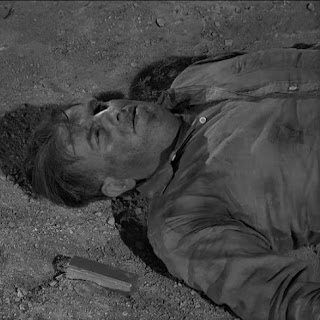A couple of weeks prior to Christmas 1999, I brought a package to a private mailing outlet that I frequently patronized. The local post office is the pits! On this occasion, the shop’s proprietor and I discussed the impending year 2000. “Remember,” he asked, “how we used to calculate how old we would be in the year 2000?” Funny, but I did recall doing such math at some point in my youth. You know, when I felt immortal and impervious to the slings and arrows of life.
The new century seemed so far, far away back then. So
far, in fact, that it appeared as a mirage, something that was just too distant
to ever come to pass. But come to pass it did—and then some—and it’s been
pretty much all downhill since. Well, not all downhill. I am grateful for
Amazon Prime and Netflix. I just binge-watched Cobra Kai season four on
the latter and will be watching Wycliffe for a second time on the
former. Wycliffe is a 1990s British detective series based on novels by W.J.
Burley. It’s pre-Internet and cell phones, and the lead detective has minimal
angst to contend with—his personal life isn’t an unfolding soap opera—which is
a welcome change in the genre. Granted, there are a lot of uber-angst laden
policemen, like Luther, which I enjoyed as well.
Not very long after my philosophical confab with the postmaster-entrepreneur, I visited a friend in Manhattan on New Year’s Eve day 1999. When we parted ways at the 72nd Street subway station entrance, I said to him, “I’ll see you in the next century…century (fade out).” I solemnly uttered the sentence with a distinct accent, reprising the words and manner of Doctor Farwell played by actor Oscar Beregi in The Twilight Zone episode “The Rip Van Winkle Caper.”
Plot: The mastermind, Farwell, and his cohorts hijack a train load of gold on its way to Fort Knox. The plan: Put everyone in his aberrant entourage to sleep for one hundred years and—when the heat is off—wake up free to spend their ill-gotten gains as extremely rich men. The chief problem with the plan—ingenious as it was—is that the future is an unknown quantity. Farwell and company smell the coffee in 2061 all right, which is only thirty-nine years from now. But that world is full of people driving George Jetson-type Teslas and sporting minimalist-futuristic apparel. The gold bullion, by the way, is worthless, because in the intervening one hundred years, humans found a way to manufacturer the stuff.
Doc Farwell in 1961, of course, didn’t take into
account things like climate change. Had he made it out of Death Valley alive—which
is where the gang slumbered for a century—he’d no doubt have been surprised how
different his home of state of California was and the country at large, too. A
lesson here: The Big Brain figured out how to put people to sleep—with all the
body functions in suspended animation—but was like a helpless child in a new
world full of new things and new attitudes. Think of all the newfangled technology
that would have been at his fingertips had he made it out of the desert. God
only knows what the technology will be like in 2061.
So, why not? Let me calculate my age in 2061. Oh, never mind: I’ll be dead as a doornail then. And considering what I see happening in the here and now on so many fronts, there are worse things than that. Personally, I believe Farwell would have done better to go back in time to 1860, so long as he avoided combat, typhoid fever, and dysentery.




No comments:
Post a Comment
Note: Only a member of this blog may post a comment.